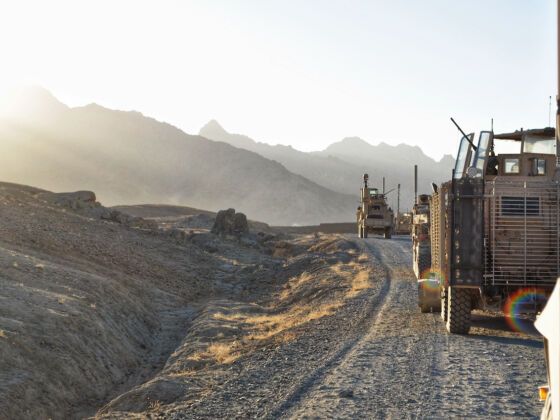The snow-capped peaks of the Hindu Kush are jutting through a dark layer of clouds this morning. My tired eyes are transfixed on the mountains as we speed through smoky streets, dodging buses and motorcycles. Groggily readjusting my body armor, I let my mind wander.
I grew up reading about these mountains. The trade towers fell when I was 11 years old and in the 12 years since, this mountain range has become legend. It’s rumored bin Laden made his escape through its harrowing passes, and to this day it provides sanctuary to disaffected insurgents. It never occurred to me that my own path might lead to its slopes. Still, just a year out of college and not wearing any particular uniform, I’m driving through Kabul, laden with weapons and gazing at the majesty of those icy peaks.
